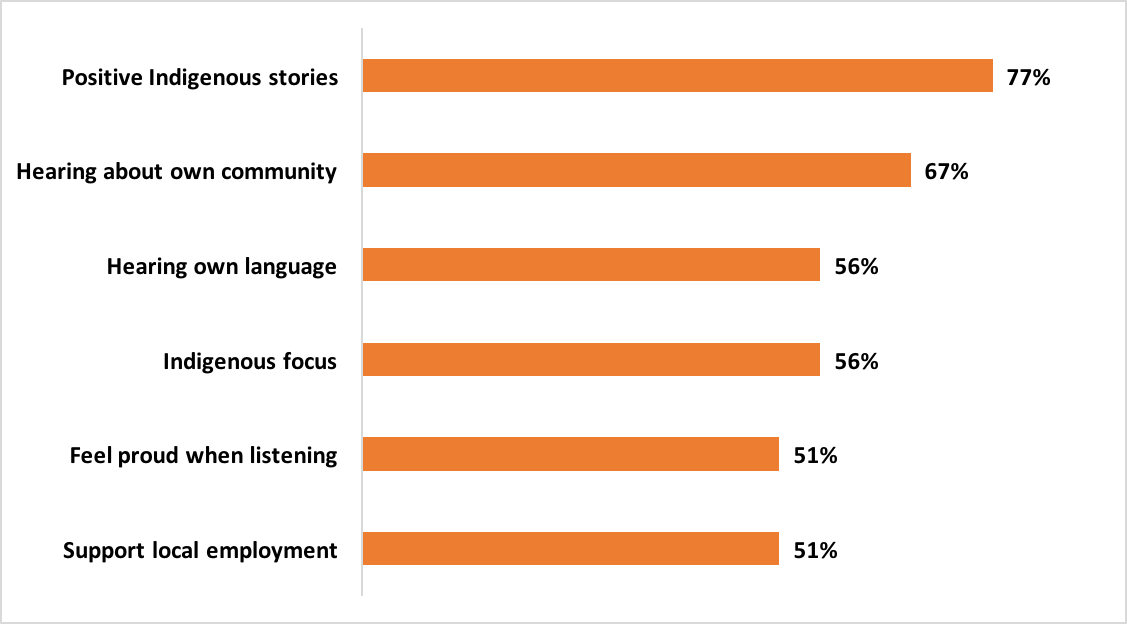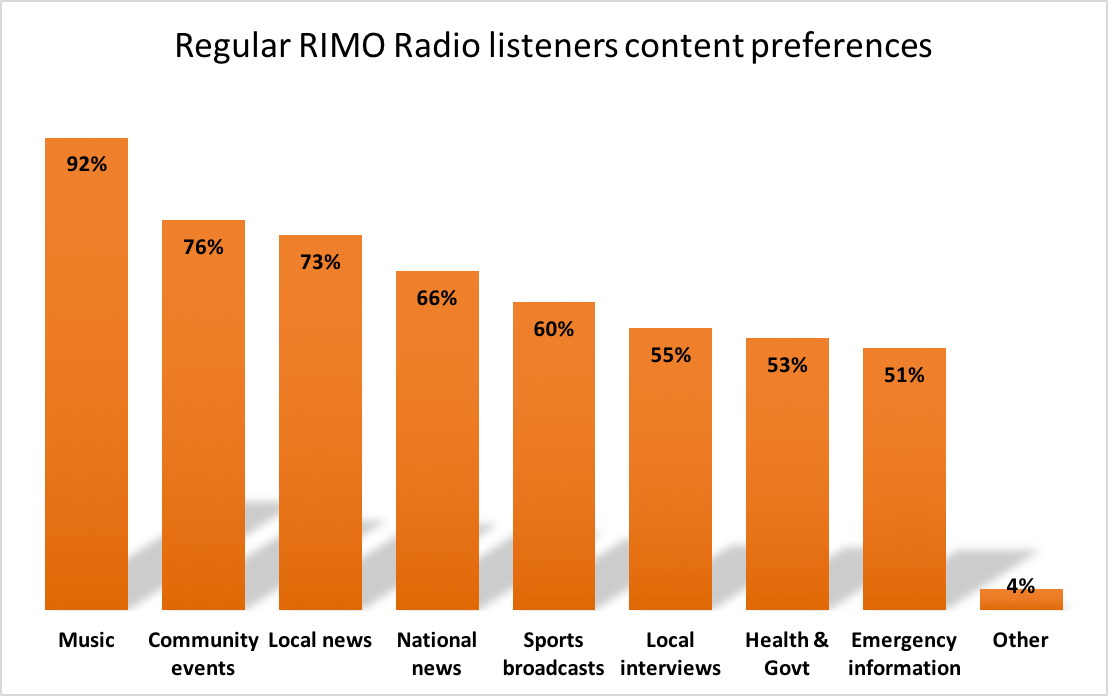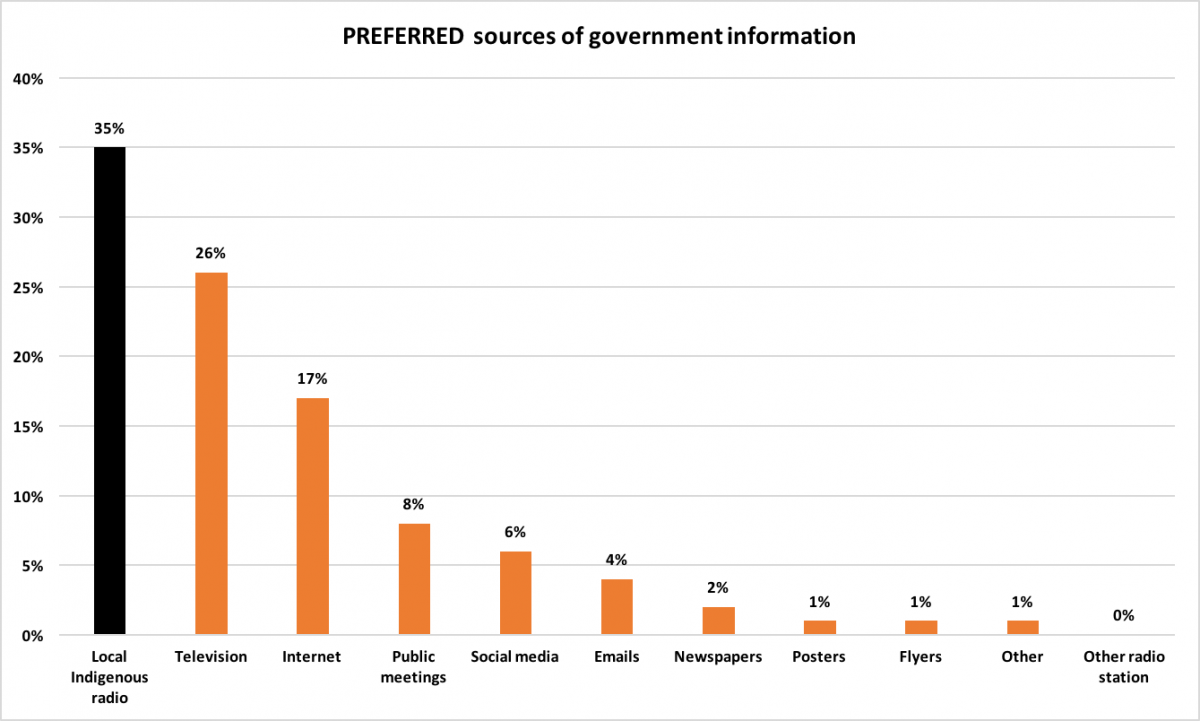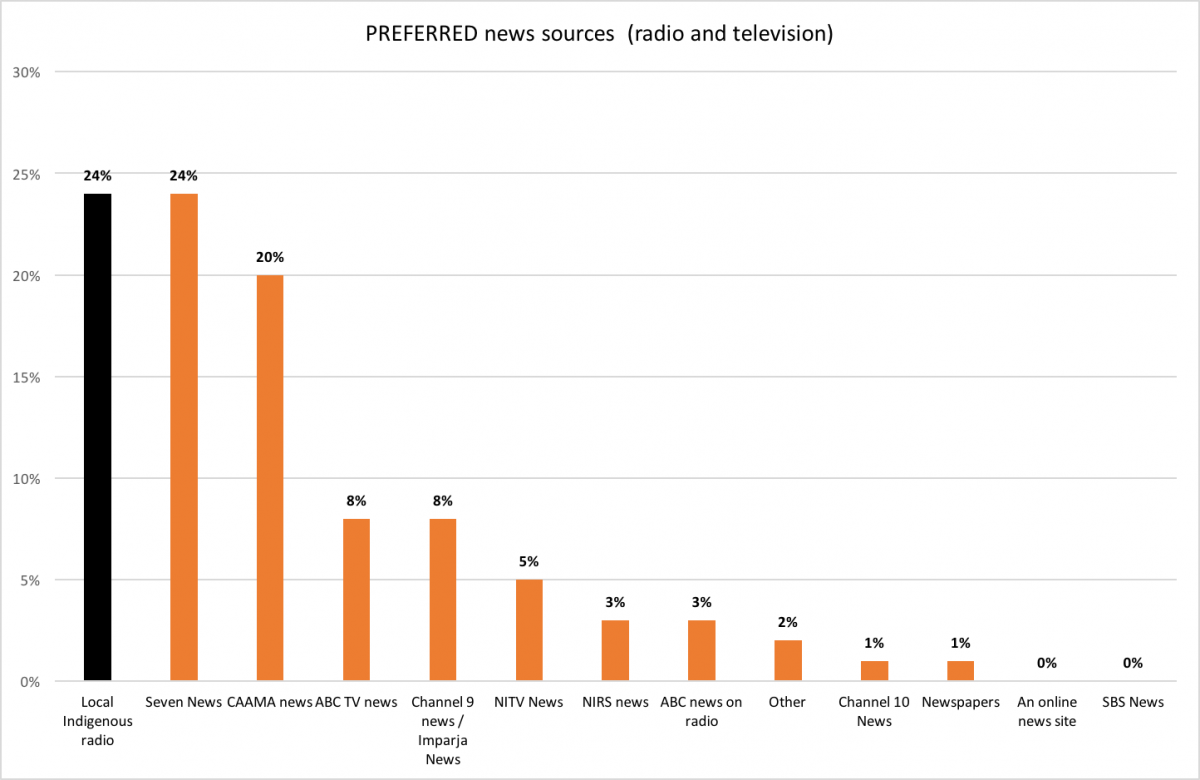
| About the Survey | Download the Survey | Access the survey online | Survey methodology | Selected findings |
About the Survey
The 2016 Indigenous Communications and Media Survey was designed to gather data on audience characteristics of and preferences for:
- Listening to remote Aboriginal and Torres Strait Islander radio and viewing Aboriginal and Torres Strait Islander television;
- Engaging with television, news sources, government information; and
- Using communications and broadcast receiving technologies.
The Survey comprised two components:
- Very remote survey.
- Remote, regional and urban survey.
The very remote survey was conducted face-to-face through IRCA and participating Remote Indigenous Media Organisations to address a range of challenges around language, lack of telephony, and engagement. For these reasons, Aboriginal and Torres Strait Islander people living in remote communities, especially very remote communities, had been largely unrepresented until the 2016 survey in surveys of radio and television preferences.
Lack of comprehensive, detailed remote data to support the on-the-ground knowledge of high local engagement with Aboriginal and Torres Strait Islander media has been a hindrance at local, State/Territory and national levels for the further development of policy and expansion of resourcing.
In this context, the Indigenous Remote Communications Association, in consultation with Remote Indigenous Media Organisations (RIMOs), successfully gained funding from the Community Broadcasting Foundation for the implementation of a survey during 2016 in a range of very remote communities in the Northern Territory, South Australia, Torres Strait and Western Australia.
The remote, regional and urban survey was conducted by telephone, with funding through the Dept. of Prime Minister and Cabinet.
Download the survey
Access the survey online
The survey can be accessed at the McNair Yellowsquares website using the login IRCA and password Icams123.
Very remote survey methodology
McNair Ingenuity Research (now McNair Yellowsquares) working with the Indigenous Remote Communications Association designed and implemented the survey over March to October 2016, using locally based Aboriginal and Torres Strait Islander interviewers.
218 face-to-face interviews were conducted across the Northern Territory, Torres Strait, Western Australia and South Australia by members of the local communities or nearby communities.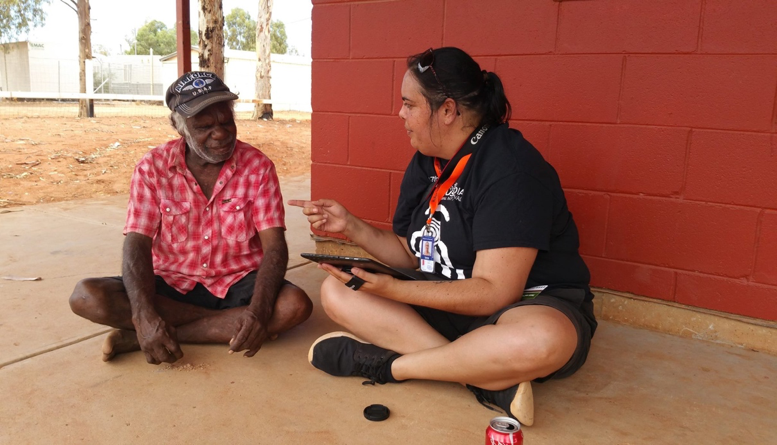
The interviewing was conducted in 11 remote communities spread across the six participating Remote Indigenous Media Organisations (RIMOs). RIMOs coordinate a range of Remote Indigenous Broadcasting services in their assigned geographic areas of responsibility.
Only persons aged 18 or above and self-identifying as Aboriginal and Torres Strait Islander were interviewed.
The results of the overall research have been weighted to reflect the overall population of Indigenous Australians aged 18 and over, as provided by the Australian Bureau of Statistics, (ABS TableBuilder, Remoteness Areas (UR) by Indigenous Status (INGP), Sex (SEXP) and Age in Single Years (AGEP), Data Source: 2011 Census of Population and Housing). The 18 years and above population across all footprints is estimated at 19,669. Weighting by age and gender was also applied.
Interviewers were recruited by the Indigenous Remote Communications Association, and trained by McNair Ingenuity Research – either in person or by teleconference.
The interviewers were provided with tablet computers running SurveyToGo by McNair Ingenuity Research for conducting the interviews. Training included the process for selecting a balance of male and female respondents and a representative cross-section of age groups.
Selected findings: remote radio
Reasons remote Aboriginal and Torres Strait Islander people listen
Content preferences
Preferred sources of information

